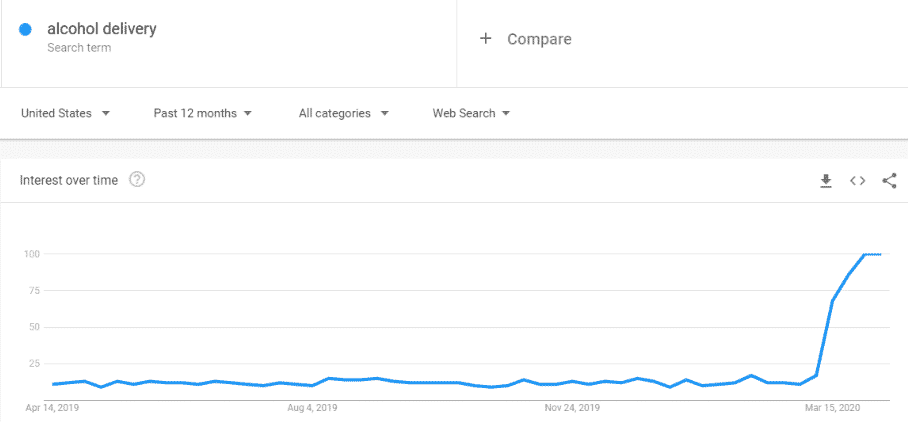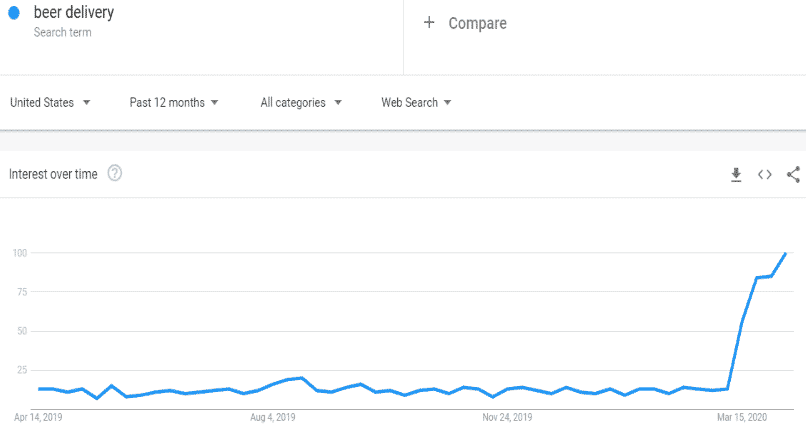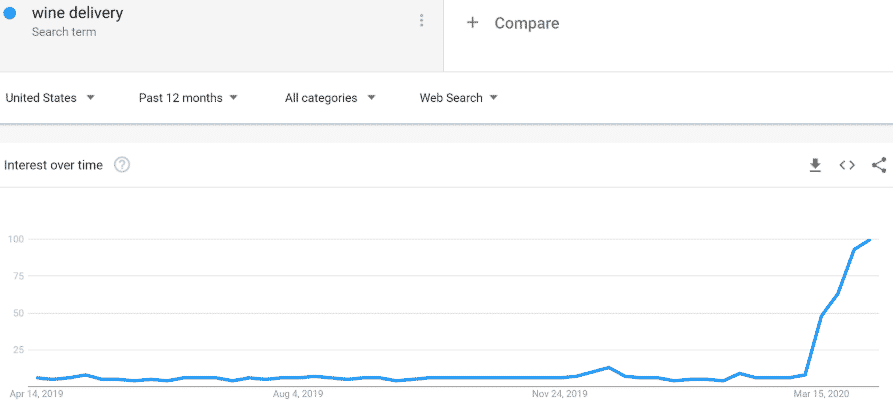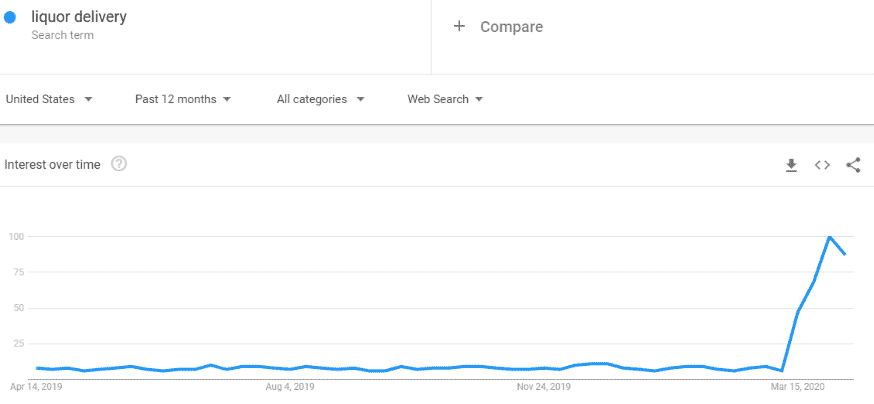Drinking won’t make the pandemic go away. Instead, it’s likely to create many more issues on top of an already stressful situation.
How the COVID-19 Pandemic Could be Fueling Another Epidemic
The COVID-19 outbreak has affected millions of Americans, and many have found themselves stuck at home after being laid off from work or being told to telecommute. Restaurants, bars and other social hangout spots have closed their doors, forcing people to find ways to keep themselves occupied.
Lack of work, erratic routine changes, isolation and the fear of illness are stressful situations on their own, and the pandemic is slamming people with all of them at once. Experts are even predicting that this perfect storm will result in increased rates of substance use.
Though it can be hard to accurately pinpoint the latest trends in drug and alcohol use, there’s evidence that the pandemic could be incubating unhealthy coping mechanisms. Specifically, alcohol delivery services are booming.
Increased Alcohol Deliveries
Google search trends show that searches for alcohol delivery have more than doubled since the beginning of March. Searches for “wine delivery” and “beer delivery” have also seen similar jumps in frequency, with each seeing 4–5 times as many searches beginning in mid-March, which is when many states began suggesting that citizens should stay at home. Additionally, the alcohol delivery app Drizly saw a 300% increase in March sales, and nationwide alcohol sales in late March jumped 55% when compared to the previous year.

Increased Interest in Beer Delivery

Increased Interest in Wine Delivery

Increased Interest in Liquor Delivery

Along with increased searches for alcohol delivery have come a boost in searches for online counseling, alcohol abuse and alcohol consumption. These changes may indicate that people are perhaps becoming concerned with their drinking habits and seeking help or information about recovery.
When Does Using Alcohol to Cope Turn into a Problem?
When professionals talk about what can trigger substance use, boredom, anxiety and hopelessness play large roles. These feelings grow more and more common as the pandemic continues, but using substances to cope or self-medicate can easily lead to dependence and addiction. As a result, experts highly recommend that people avoid using substances to overcome the stress of the pandemic.
How do you know when you have a problem? Keep in mind, the stereotypes of what an alcoholic looks like don’t always hold true. Some common signs of an alcohol use disorder include:
- Inability to reduce amount of alcohol consumption
- Cravings for alcohol
- Having to drink more to get drunk
- Drinking early in the day
- Drinking alone
- Memory blackouts
“What we’re looking at is people leaning on coping skills that may not be the healthiest choices for them,” says Stacey Henson. “The concern we have is that people are tapping into old behaviors that are not going to lead to healthy outcomes or keep them working towards recovery.”
COVID-19’s Impact on Recovery
Feelings of stress, anxiety and isolation are pushing some people in recovery back into old, destructive habits of substance use. Many who attend 12-step programs rely heavily on those meeting with others. For these individuals, the routine of physically going to a meeting and socializing with others helps them be able to commit to recovery each day. With in-person meetings out of the question, many are left struggling.
Additionally, the pandemic has affected or even interrupted the availability of medication-assisted treatment for some patients, putting them at greater risk for overdose. For example, prior to the spread of COVID-19, patients receiving methadone treatment reported to clinics six days a week for the first three months. This schedule could be a diversion as well as another stabilizing routine, especially in the early days of recovery.
Isolation, stress and feelings of hopelessness are also common relapse triggers for people in recovery, which is why online recovery resources are perhaps more important than ever. Though most recovery groups have canceled in-person meetings, organizations like Al-Anon have successfully switched to holding meetings online. Both telemedicine and online recovery resources are helping people stay committed to sobriety, even during these stressful times.
Recovery Is Still Possible
Have you found yourself drinking more while in quarantine, or are you worried you may have an issue with alcohol? Take one of our quizzes and see whether you show the signs of an alcohol use disorder.
If you or a loved one are struggling with addiction and need a helping hand, The Recovery Village is at your side. Contact us today to learn more about treatment plans and programs that can work well for your situation, including teletherapy options.


Davis, Charles. “The trauma of the coronavirus pandemic c[…]e abuse, experts say.” Business Insider, March 30, 2020. Accessed April 8, 2020.
Costa, Cameron. “Drinking, social distancing and a booze-delivery-app boom.” CNBC, March 27, 2020. Accessed April 8, 2020.
Mammoser, Gigen. “Resist Using Pot, Alcohol to Ease Fears […]ng COVID-19 Outbreak.” March 24, 2020. Accessed April 8, 2020.
Sganga, Nicole. “How the coronavirus is hurting drug and alcohol recovery.” CBS News, April 3, 2020. Accessed April 8, 2020.
Hicks, Tony. “How People in Addiction Recovery Are Dea[…]solation of COVID-19.” Healthline, March 22, 2020. Accessed April 10, 2020.
Byington, Lillianna. “Alcohol sales spike as consumers stockpi[…]id COVID-19 pandemic.” Food Dive, April 2, 2020. Accessed April 10, 2020.
The Recovery Village aims to improve the quality of life for people struggling with substance use or mental health disorder with fact-based content about the nature of behavioral health conditions, treatment options and their related outcomes. We publish material that is researched, cited, edited and reviewed by licensed medical professionals. The information we provide is not intended to be a substitute for professional medical advice, diagnosis or treatment. It should not be used in place of the advice of your physician or other qualified healthcare providers.